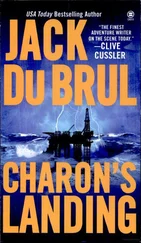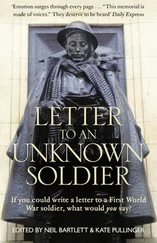“Okay,” said Harriet. “Okay.”
“Another coffee?” Emily offered.
“No,” said Harriet. “I’m fine.”
“Michael?” said Emily.
He was staring out the window. He looked back at Emily. “Yes?”
“Can you tell me what you thought about Harriet’s secret?”
He looked at his wife.
“You were accepting at the time,” said Harriet. “We’d had a bad couple of years before that, you got stuck in Toronto and—”
“I got stuck in Toronto and when I got back, things were difficult between us.”
Harriet looked at her shoes.
“Come on,” said Michael, turning back to Emily and the camera. “This is excruciating. I don’t want to talk about that. I didn’t like the idea that Harriet had carried the weight of this secret all that time. I was glad she told me.”
Harriet took his hand and squeezed it and began to speak again. “I told you about the room I had, Mick’s amazing room, up in the attic. Well, Barry had the same room, in the house next door. Hers was not nearly as nice—they’d laid a plywood floor, but the roof beams and struts were bare. Freezing in winter, boiling in summer. And no window, just one or two bits of Perspex shoved in place of the roof tiles. I guess whoever had lived there before had been good friends with Mick, because they’d knocked a small opening into the brick wall that separated the two houses, beside the chimney breast, and put a miniature door there, a little cupboard that you’d open expecting to find a fuse box or something, but instead you’d find a view into the room next door. And that’s how I met your mother. The day I moved in, I opened the little door and Barry was standing there on the other side, looking through. I screamed and slammed the door shut. When I opened it again, she was still standing there, smiling. For a moment I wondered if the little cupboard housed a portrait, like Dorian Gray before it all went wrong, a portrait of a beautiful young woman. But then she spoke.
“ ‘Hello!’ she said, and she stuck her hand through the gap. ‘I’m Barry. You’re my new neighbour.’ We arranged to go to the pub together at lunchtime—” Harriet looked at Michael. “God, remember going to the pub at lunchtime?”
Michael shook his head. “I never went to the pub at lunchtime.”
Harriet looked back at Emily. “And that was that. I fell in love with her and we became best friends. Barry had other best friends, she had a lot of friends, she collected people, and she liked nothing so much as to introduce them to each other. But Barry was it for me. We glued ourselves together, cycling up to the Poly for classes, heading over to the South Bank to go to old movies at the National Film Theatre, pottering along the mucky strand by Vauxhall Bridge when the river was at low tide, spending hours in the pub with our friends. At night we’d leave the little cupboard door open, and we’d lie in bed and talk to each other through the open space.
“On the river near where we lived there was an enormous abandoned building, a giant storage facility—Nine Elms Cold Store, it said, in big letters across the top. It was an enormous box sitting there by the river, with these thin slatted windows or airbreaks of some kind. It had a central core that was empty, cavernous—it hadn’t been used as a cold store in years, and no one knew who owned it. It was dark and cold and the concrete floors were full of vast unanticipated holes and puddles. It’s long gone, demolished to make way for flats. We used to have parties there. It was a renegade space—we were squatters. We liked to pretend that anything that wasn’t occupied was ours for the taking.
“It was at one of those parties that Barry met George Sigo. With his Black Irish good looks. He was London Irish, a Catholic, a Republican, but he was clearly unwell in some fundamental way—subject to rages. Obsessions and rages. You could feel it in him once he’d had a few drinks. He’d get into fights. I never could see what Barry saw in him—all I ever saw was that rage. He was involved with Troops Out.” Harriet stopped. “Do I need to explain what Troops Out was?”
Emily shook her head.
“He used to spend half his time cooking these horrible meals to deliver to the Republican prisoners who were on remand in Brixton Prison.” Harriet looked at Michael as though she expected him to say something. He pursed his lips.
“Anyway, George cooked his meals, and Barry helped him when she had time—she even helped him deliver them to prison occasionally. She was devoted to him. At least, she was devoted to him for a few months. And then she stopped being devoted to him. And George stopped coming round. It was very abrupt. She wouldn’t tell me what had gone wrong—she looked pained when I asked her and said it was in the past, it was over, it had been a mistake, George was a mistake and she didn’t want to think about it any longer. I accepted that. Why wouldn’t I?
“And then after another few weeks she realized she was pregnant. Quite pregnant. Had been pregnant for some time. But even that didn’t seem to faze her. Her plan was to continue with her course—she’d have her degree by the time you were six months old, she’d do the work placements that were part of our course, and she’d find a job, easy. I admired her for that. If I’d got pregnant then, I wouldn’t have even considered keeping it.” Harriet gasped and covered her mouth. “Shit, I’m sorry.”
Emily shook her head. “Don’t worry, I’m not offended.”
“Listen,” said Michael, “have you got any beer?”
Both women looked at him.
“It’s nearly lunchtime,” he said. “All that talk of pubs.”
“I’ve got some in my fridge.”
“Please,” said Michael.
“Harriet?”
“Oh, not me.”
Emily went into her kitchen and opened the fridge. She had made contact with George Sigo about a year after she met Harriet. It went okay. He was out of prison again but he was struggling. She hadn’t enjoyed feeling sorry for him, and he’d gone out of his way to make it clear they owed each other nothing. “I just wanted to lay eyes on you, girl,” he said. “I’ve done that now.”
She’d allowed Harriet to take her out to dinner after the meeting. They’d ended up in the ladies’ room, Emily crying so hard they both thought she’d be sick. When she could speak, she said, “I really am an orphan, aren’t I?”
Harriet gave her another hug. “Nearly,” she said. “Not quite.”
Harriet appeared at her side now in the kitchen. “Do you have any more of that wine we were drinking the other evening?”
When they returned to the sitting room with their glasses of wine, Michael stood up to stretch and drink his beer.
Harriet sat down. “I went on a bit there. Sorry.”
“I thought it was good,” said Emily. “Interesting.”
“You’re probably the only person in the world who finds this interesting.”
“Could be.”
“I’ll continue.” Harriet looked at Michael.
“Be my guest,” he replied, and he sat back down beside her.
“Barry was healthy throughout the whole pregnancy. She bloomed, she really did, like only a young pregnant woman can. She had pots of energy, too—for college, for our social lives, for having fun. For me. The little door that had been shut while George Sigo was around was open once again. Six months, seven months, eight months—she got bigger, but she was slight, like you, she never really seemed that large, that pregnant.
“It was close to Christmas, and before everyone set off to see family, we decided to have one last big party at the cold store. Somebody was friends with somebody else who was in a band—a big brass punk band, if you can imagine such a thing—and they set up their stage down one end of the vast room. At the other end, which was partially open to the river—I guess there’d been a dock there at one time, but most of that was gone, only a few pilings still standing—we made a big bonfire. And hundreds of people came. The band played, and we danced, and we stood around the fire trying to get warm, and we drank cheap cider and punch made from the cheapest red wine. Barry wasn’t drinking, at least not more than a glass, and that was part of what made the accident so inexplicable.
Читать дальше












